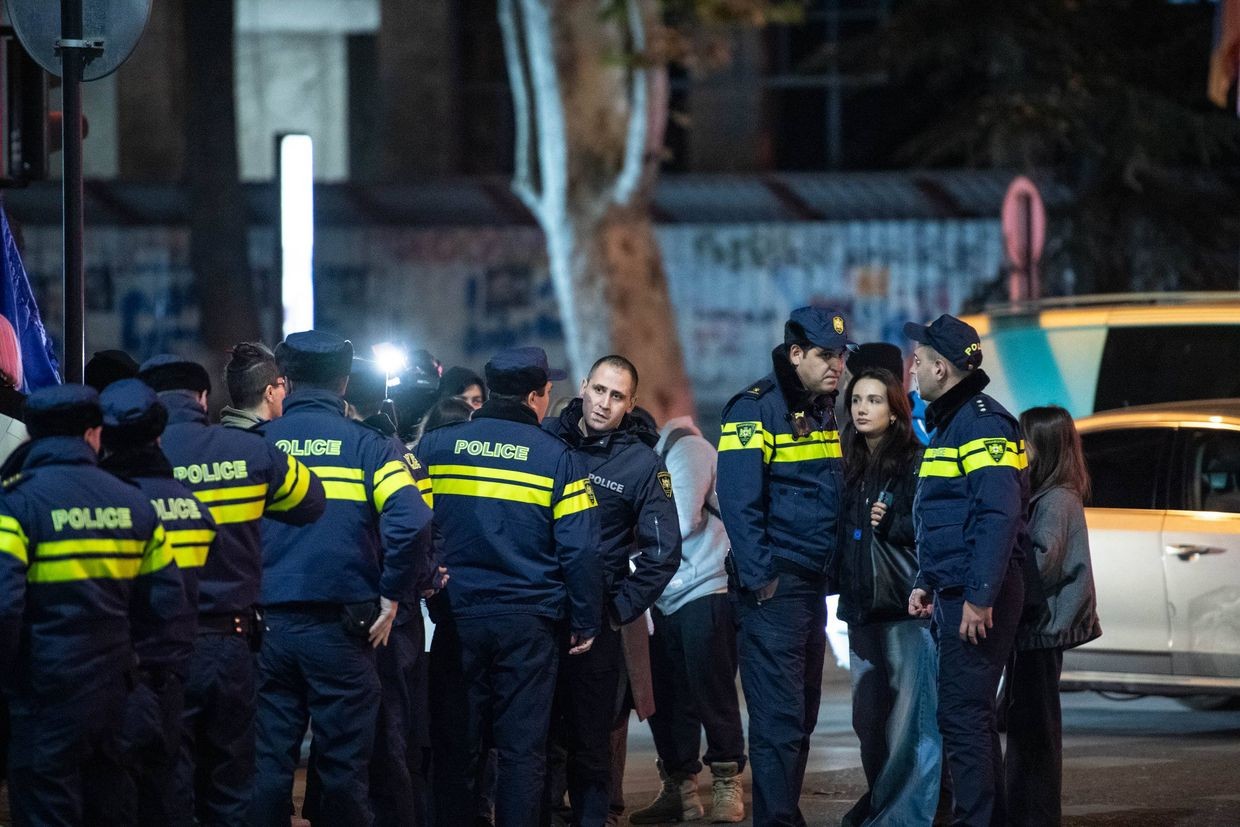
Police have detained 13 protesters during a march in support of imprisoned 21-year-old Mate Devidze, who was originally detained one year ago on 19 November 2024.
According to the Interior Ministry, those detained on Wednesday evening ‘did not obey the lawful request of the police officers and verbally abused law enforcement officials while performing their official duties’.
The march gathered outside Tbilisi State University before walking to Melikishvili Avenue, following the same route where protesters, including Devidze, were detained one year ago on 19 November 2024 during demonstrations against electoral fraud during October’s parliamentary elections.
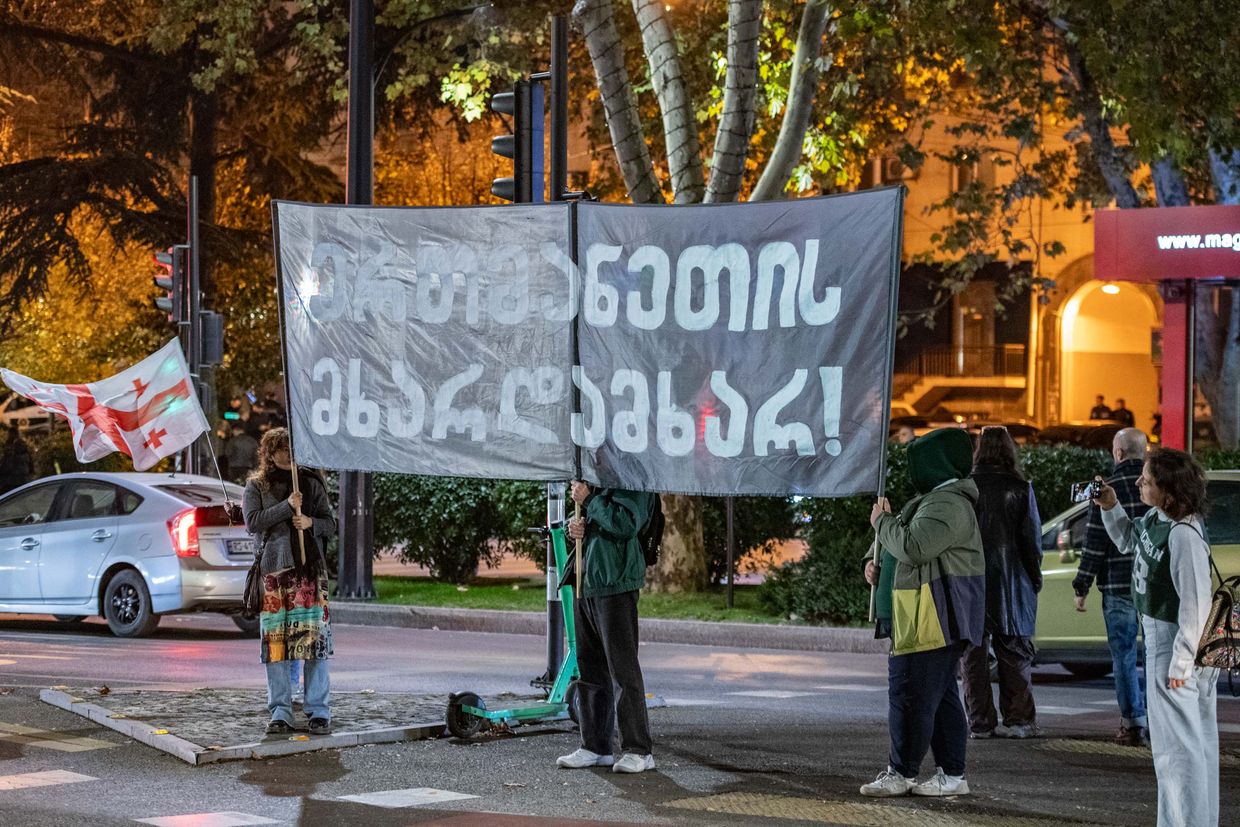
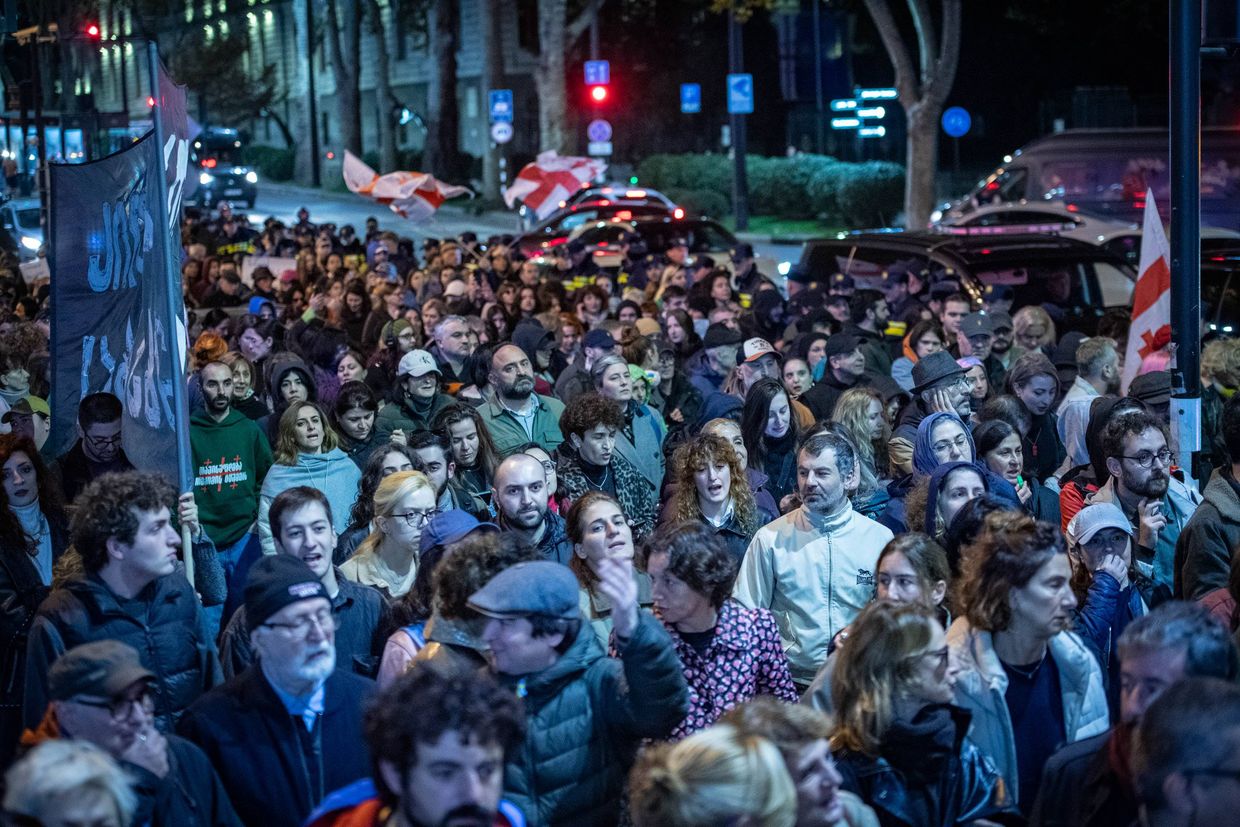
Devidze was accused of hitting three police officers — Levan Kodelashvili, Giorgi Estateshvili, and Bidzina Zhamerashvili — with a stick. His defence insisted that what Devidze was holding was not a stick, but a rolled up paper poster, and that he was defending himself during the arrests.
In June 2025, Tbilisi City Court sentenced Devidze to four years and six months in prison.


Despite the size of Wednesday’s march, police did not let the demonstrators walk on a bus lane along the pavement. In response, the protesters headed towards the smaller streets in Tbilisi’s Vera and Mtatsminda districts. Eventually, the march stopped on Polikarpe Kakabadze street to read out the names of imprisoned protesters, to sing the national anthem, and to wait for a smaller march heading to join them from Rustaveli.
At this point, dozens of police officers approached the march and began to push the protesters back onto the pavement.
During the initial scuffles, several demonstrators were detained. Even after people stood on the pavement, arrests continued, with police taking people off the pavement. In many cases, it appeared as if they were targeting specific people, though it is unclear on what basis.
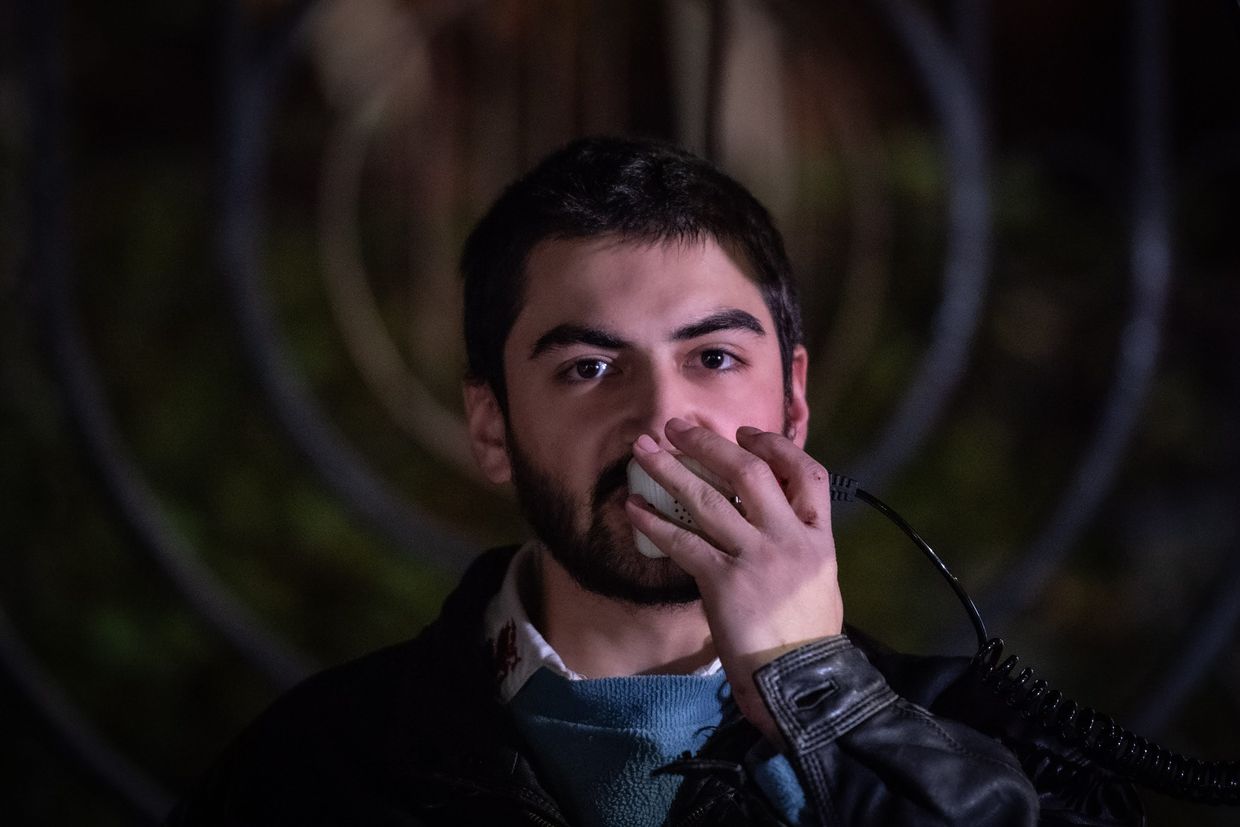
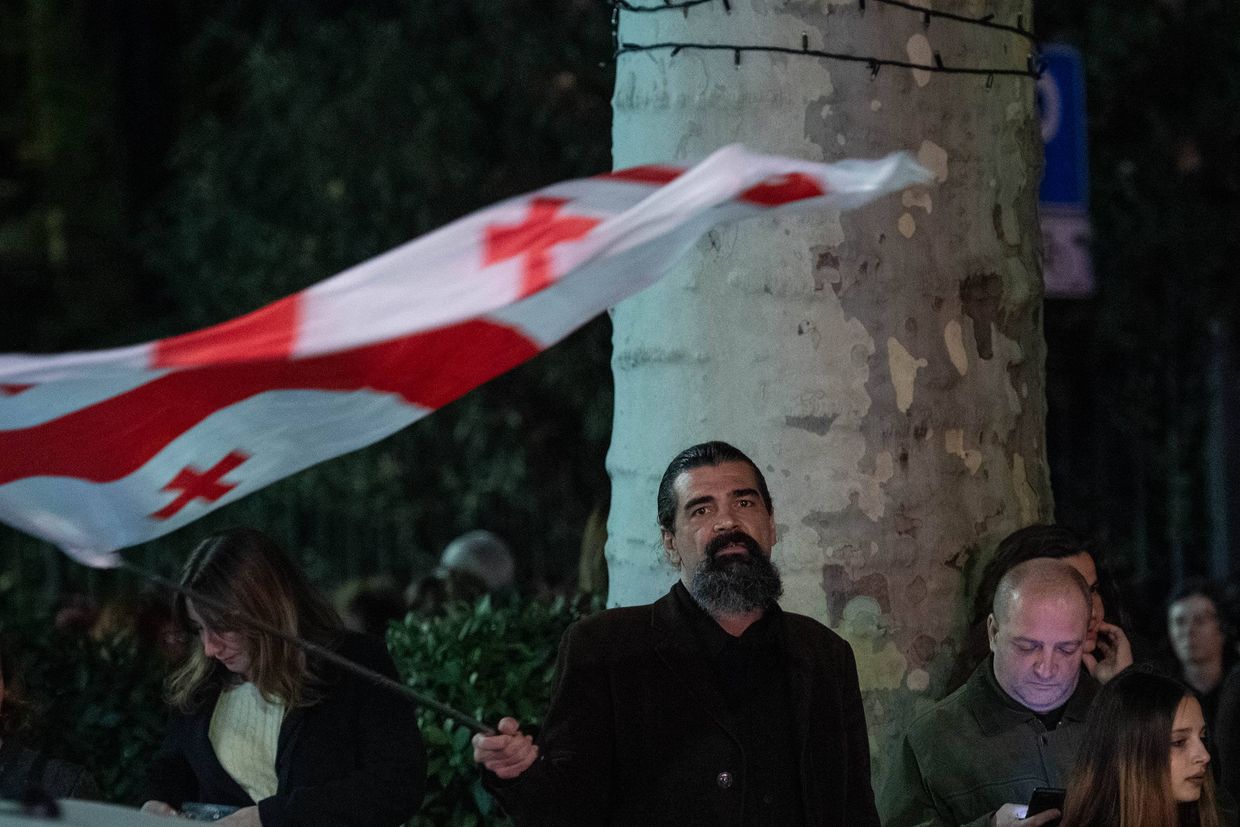
Since 28 November 2024, when Prime Minister Irakli Kobakhidze announced the halting of Georgia’s EU-integration process, demonstrators have used road-blocking, particularly of Tbilisi’s main Rustaveli Avenue, as a main tool of protest.
In response, the ruling Georgian Dream party has tightened regulations related to freedom of assembly, most recently by making blocking the road punishable up to 15 days in prison and in the case of repeated offences, up to one year in jail. While protesters continued to block the road despite the restrictions, eventually, on 6 November, a large police force prevented protesters from blocking Rustaveli. Since then, protesters have begun organising daily marches while police follow them attempting to stop them from blocking smaller roads.
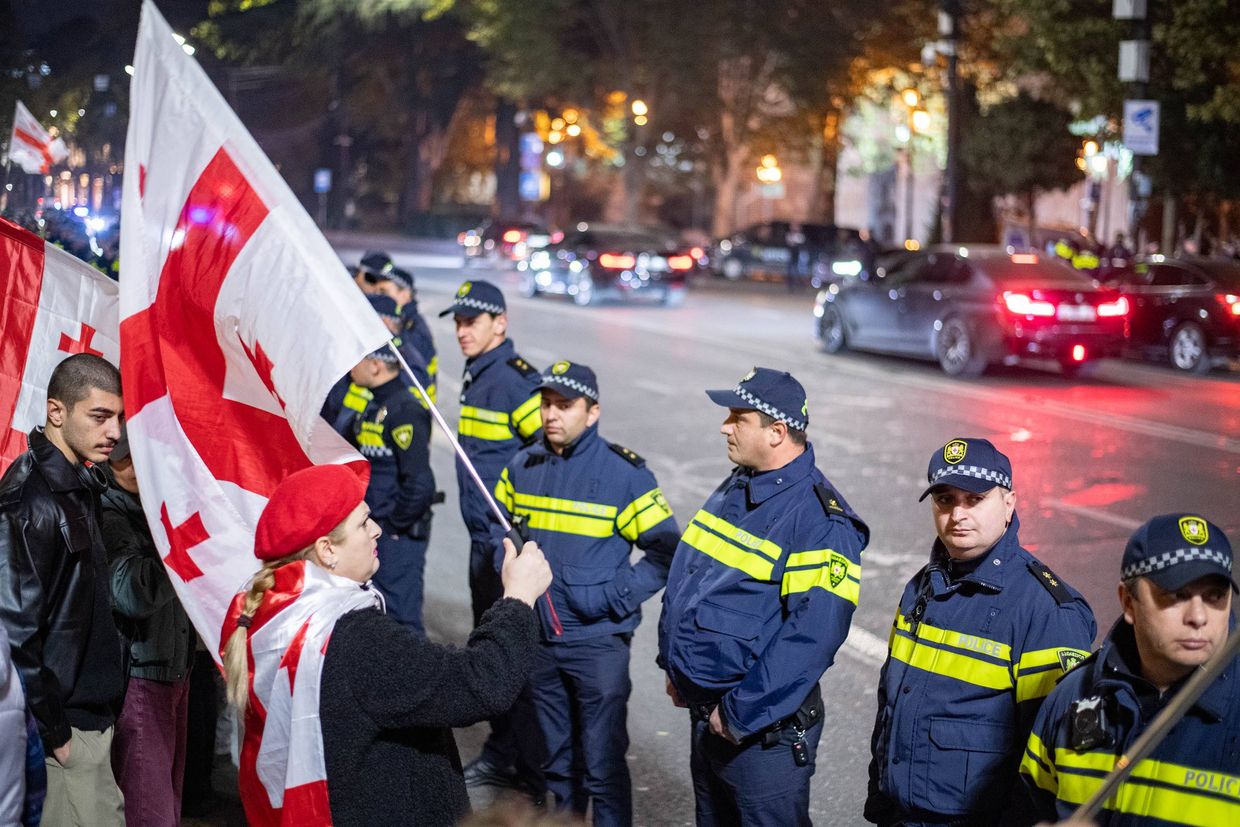





![Baia Margishvili standing in central Tbilisi with a sign reading: ‘The Prosecutor’s Office [is] a punitive squad. How many more innocent people will you put in prison?’ Photo: Mariam Nikuradze/OC Media.](/_next/image/?url=https%3A%2F%2Fassets.bucket.fourthestate.app%2Foc-media-prod%2Fcontent%2Fimages%2F2026%2F02%2Fcalls-for-sanctions-and-raids-19-10-25-48.jpg&w=3840&q=50)




